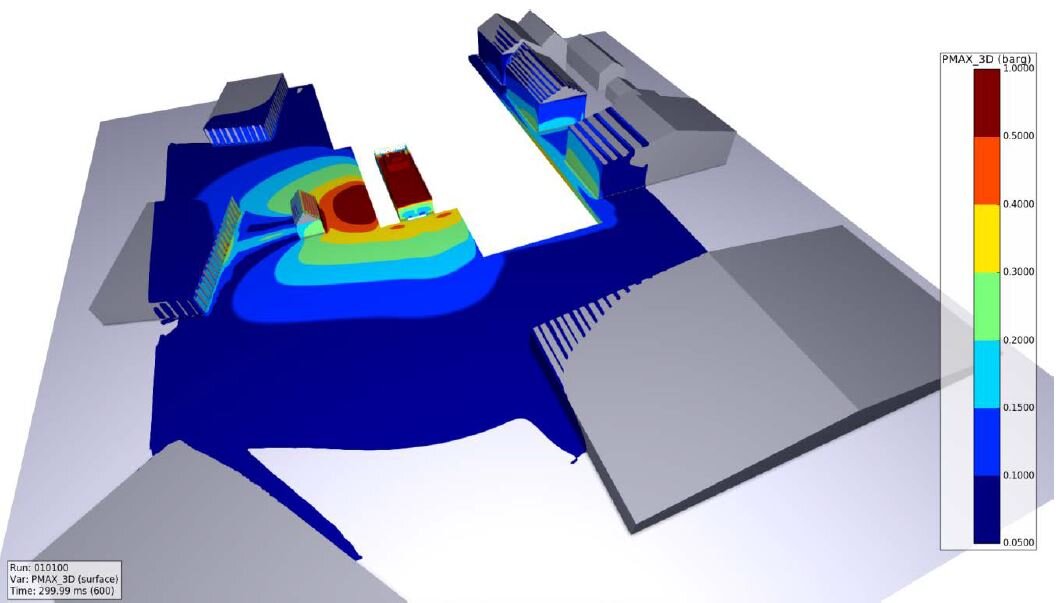Hydrogen risk article published
Image shows predicted vessel burst pressure and impulse with distance in the port of Florø, Norway
Trond Strømgren, Senior Advisor Renewable Energy and Hydrogen Value Chain in Ocean Hyway Cluster, has co-authored the article Concept risk assessment of a hydrogen driven high speed passenger ferry. The article was published recently by Elsevier in International Journal of Hydrogen Energy. The concept risk assessment is based on the Western Norway high speed passenger vessel concept GKP7H2, managed by Ocean Hyway Cluster, following extensive work and analyses done within the Norwegian MoZEES research centre. Access the article here for free until 6 February.
Article abstract
A concept risk assessment of a hydrogen and fuel cell driven high speed passenger ferry has been performed. The study focused on fatality risk related to the hydrogen systems on the vessel, both during operation and while moored in harbour overnight. The main objective with the study was to evaluate whether the risk related to the hydrogen systems is equivalent to that of conventionally fuelled vessels and can be considered acceptable according to the requirements of the IGF-code (International Code of Safety for Ships Using Gases or Other Low-flashpoint Fuels).
Since hydrogen behaves differently than other flammable gases, some adjustments to existing models and vulnerability criteria have been proposed. The conclusion of the study is that the estimated risk related to hydrogen systems is relatively low, and much lower than the expected acceptable risk tolerance level of 0.5–1.0 fatalities per 109 passenger km. Furthermore, for the overnight mooring in harbour the estimated risks are well within acceptable limits. The work presented is part of a maritime case study performed within MoZEES, a Norwegian research centre for environmentally friendly technology and zero emission transport. Access the article here for free until 6 February.

